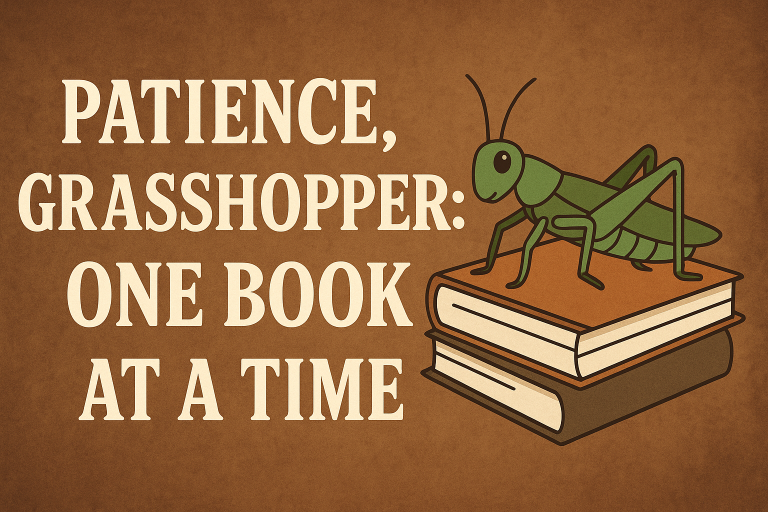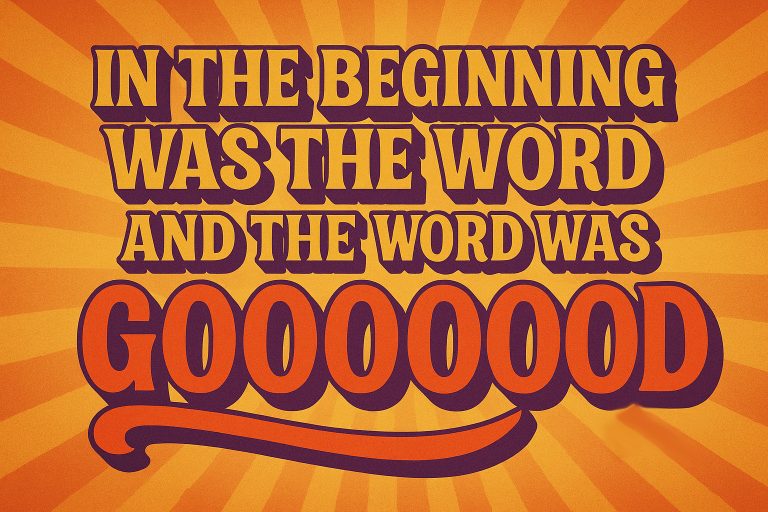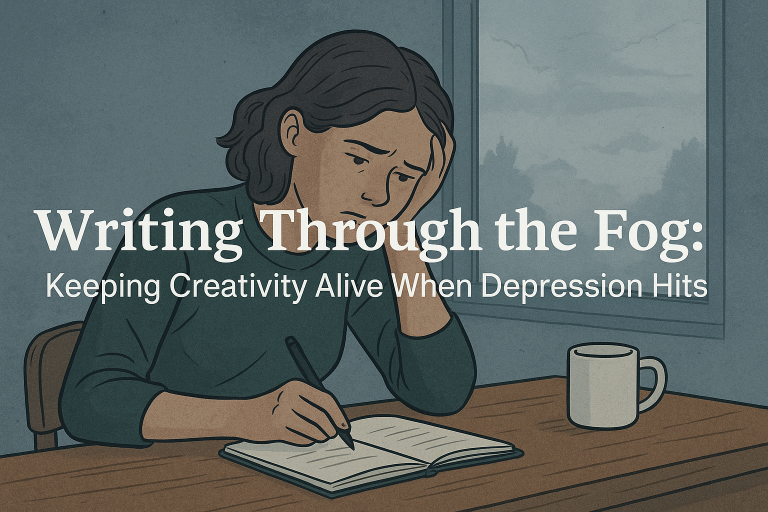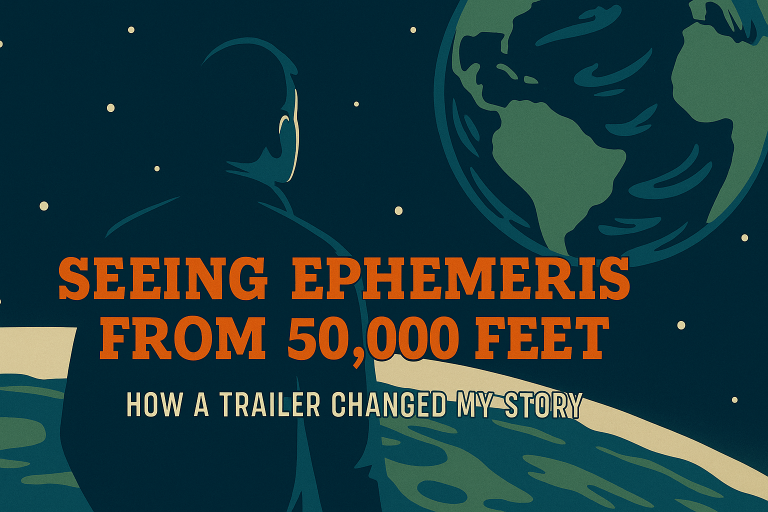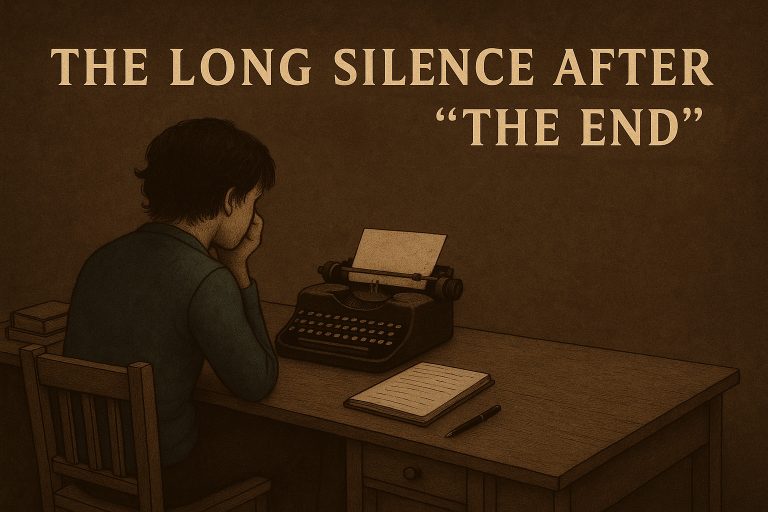There’s a very particular kind of tension that comes with writing a book. You wrestle with ideas, characters, settings, and sentences for months (or in some cases, years) until you finally get to a point where the story feels complete. Or at least, complete enough that it can stand on its own two legs without you holding it upright.
But then comes a moment that can feel more nerve-wracking than finishing the manuscript itself: sending it to your beta readers.
These aren’t strangers. These are people you know. People whose opinions you respect. People who know the genre and will spot every gap in the plot, every moment that doesn’t ring true. And, in my case, people who aren’t shy about being honest. That’s why I chose them. But it doesn’t make pressing “send” any easier.
Why This Feels Different
When I was writing Ephemeris, I expected the hard part to be finishing the draft. After all, this was my first manuscript. I’d dreamt of writing a book my whole life, and I finally completed it at 49. The finish line felt like the pinnacle. But the truth is, sending it out to beta readers might be the real high-wire act.
The writing process is private. If you mess something up, no one sees it but you. But the moment you send it out, the privacy evaporates. You’re opening your creative work to eyes that will notice what you’ve missed. It’s a vulnerable, humbling experience. Like stepping onto a stage without knowing if the spotlight will be flattering or unforgiving.
The Stakes Feel Higher Than They Are
In reality, I know these beta readers are on my side. They want Ephemeris to succeed as much as I do. Their feedback is a gift, not a verdict. Still, when you’ve poured yourself into something for months, waking up with scenes in your head, rearranging your schedule to get a thousand more words down…it’s impossible not to feel protective.
And there’s the fear of the “what if.”
- What if they think it’s boring?
- What if the story doesn’t make sense?
- What if my favorite chapter turns out to be the weakest?
These thoughts swirl around in the hours (and let’s be honest, days) before hitting “send.” The trick is to remember that every author – no matter how seasoned – has moments when they think they’ve written the worst book in history. That doesn’t make it true.
Choosing the Right Beta Readers
Part of why this moment feels so charged is because I was deliberate in picking my early readers. I didn’t just want people who like me and would pat me on the back. I wanted readers who know science fiction inside and out. People who can tell me if my pacing drags, if my world-building holds up, if my characters feel authentic to the genre.
The challenge, of course, is that those are exactly the people who are going to give me feedback that stings. And that’s good. It’s the whole point. But it doesn’t mean it won’t make me wince when I first read it.
Trusting the Process
I remind myself constantly: beta reading is not the end. It’s not the book’s final form. It’s a stage in the process, one that makes the final book better.
When I think about it that way, sending the manuscript out is less like handing over a completed work of art for judgment and more like inviting a team of craftspeople to help me refine it. The raw material is there, but their insights will help me polish it until it shines.
The Newsletter Connection
Here’s something that makes the sting of potential cuts or rewrites a little sweeter: not everything my beta readers flag as “not working” will disappear forever. In fact, some of it might find a second life.
I’ve decided that certain deleted scenes, alternate chapters, or behind-the-scenes commentary will be offered exclusively to subscribers of my (not quite ready for publication) newsletter. This way, nothing is wasted. My readers will get a deeper look into Ephemeris, and I’ll get to share the parts of the journey that might not make it into the published version but still matter to me.
This approach turns potential losses into opportunities…almost like DVD bonus features for a book. It also softens the blow when I have to cut something I love but know doesn’t serve the story.
The Emotional Rollercoaster
The strange thing about this stage is how fast you can swing from confidence to doubt and back again. One moment you’re sure your manuscript is solid; the next you’re wondering if you should have rewritten the entire ending.
In those moments, I try to remember: the goal isn’t perfection. The goal is progress. Every piece of feedback, even the hard-to-hear stuff, is a step toward a stronger book. And the fact that I’m even in a position to send out a complete manuscript – after years of talking about wanting to write a book but never finishing one – means I’ve already cleared the biggest hurdle.
Looking Ahead
Once I pressed “send,” (which I did over the past couple of days) there’s nothing to do but wait. And while waiting is its own kind of torture, it’s also a time to take a breath. The story is out of my hands for now. I can rest. Or better yet, I can start tinkering with the next idea…because somehow, after thinking I’d never have another one, I’ve got about ten lined up.
It’s amazing how momentum works. One finished manuscript becomes a spark that lights ten more fires. But first, I need to see how Ephemeris survives its first real test.
Final Thought: Sending your work out to beta readers is like sending a child off to their first day of school. You’ve done what you can to prepare them, and now it’s time to trust they can handle the world on their own. It’s nerve-wracking. It’s exciting. And it’s necessary…because it’s the only way they’ll grow.
Interested in being a beta reader for one of my future books? Let me know!


